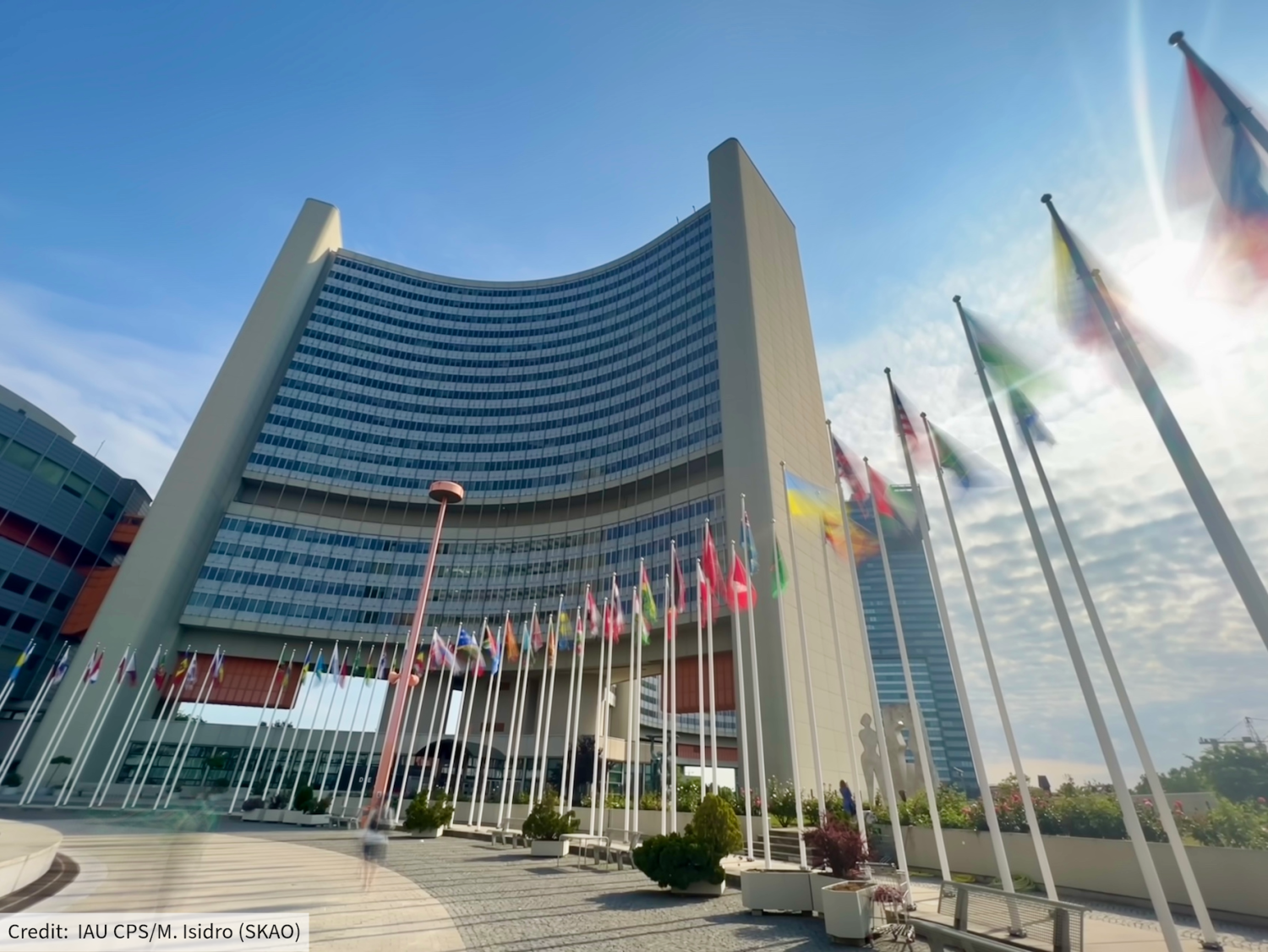United Nations body agrees to address impact of satellite constellations on astronomy

Above: The United Nations Office in Vienna, Austria which houses the United Nations Office for Outer Space Affairs and the meetings of the UN Committee on the Peaceful Uses of Outer Space (UN COPUOS). Credit: IAU CPS/M. Isidro (SKAO)
Following intense discussions, the Scientific and Technical Subcommittee of the United Nations Committee on the Peaceful Uses of Outer Space (UN COPUOS) has agreed to include an item on its agenda for the next five years with the title “Dark and Quiet Skies, astronomy and large constellations: addressing emerging issues and challenges”. As the UN’s top body for civilian space-related matters, with 102 countries and 50 permanent observers, COPUOS deals with all topics related to peaceful international cooperation and the exploration of space and planetary bodies, including the deployment of satellites, space debris mitigation, the long-term sustainability of space and the use of orbital slots.
The proposal, championed by Chile and Spain – both countries hosting significant international astronomy infrastructure – and the astronomy community, received widespread support and was co-signed by several delegations, including six SKAO partner countries [1]. The SKAO and other astronomy organisations represented on the committee encouraged and supported the efforts.
“This is a fantastic development, and shows the sway astronomy has gained in international forums like the UN” said Federico di Vruno, head of SKAO’s delegation to the 61st session of the Science & Technology Subcommittee of COPUOS. “The continuous efforts from the SKAO and other astronomy organisations is starting to have a real impact in securing support from more and more countries to study the issue and start considering mitigations to protect public investments in astronomy.”
The proposed agenda will now go before the full committee in June to be endorsed. As a dedicated agenda item, there will be more time for in-depth discussions between delegations, the ultimate goal being to develop and agree on recommendations to be adopted by member states.
Following four years of thorough work by astronomers to quantify and communicate the impact of satellite constellations on existing and upcoming astronomy facilities, the number of diplomats and policy-makers recognising the issue and taking action has grown in recent months. In May 2023 Science and Technology Ministers from the G7, six of which are members of the SKAO, emphasised the importance of continued discussion of this issue in international forums. In July, di Vruno led a study demonstrating for the first time that Starlink satellites unintentionally emit radio interference at low frequencies outside their allocated bands. This led to ongoing direct engagement between satellite operators and SKAO to address the issue.
In December 2023, delegations from 193 countries represented at the International Telecommunications Union (ITU) — the UN’s specialised agency for information and communication technologies — agreed to study potential new protections from satellites for radio astronomy over the next four years. As a member of the Radiocommunication Sector of the ITU, the SKAO and other astronomy organisations played a key role in supporting that proposal.
Notes
[1] Argentina, Austria, Belgium, Bulgaria, Chile, Colombia, Czechia, Denmark, Ecuador, Germany, Italy, the Netherlands (Kingdom of), Paraguay, Peru, Slovakia, South Africa, Spain, Switzerland (SKAO partner countries in bold).
Contact
William Garnier
SKAO Director of Communications
william.garnier@skao.int




